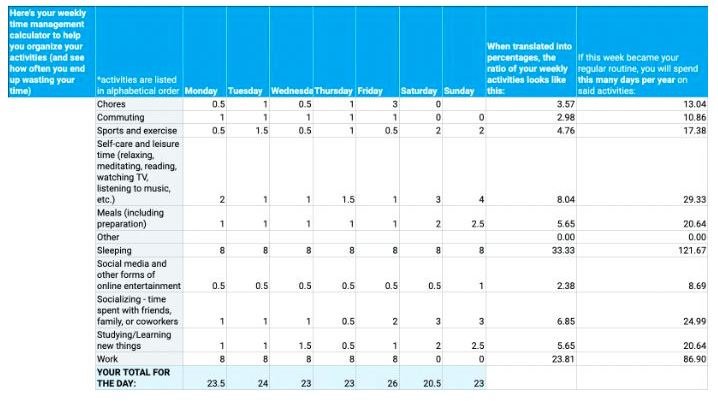You want to quit your day job and become a full-time blogger or freelancer?
Hope you’ve got a year’s salary saved up.
This is a terrible time to leave a steady paycheck, not to mention the health insurance.
On the other hand, the present is always the perfect time to start laying the foundation for self-employment.
If you aren’t yet prepared to give your two weeks’ notice, try putting out your shingle instead.
Start a low-risk online business and spend the next year nurturing it.
1. Test the waters
When it comes to self-employment, designers have a leg up on other professionals.
Freelance businesses have minimal startup costs and don’t require many new skills.
If you’ve ever dreamed of working for yourself, you can start building a personal site tonight and start searching for freelance work as soon as your portfolio hits the web.
If you’ve never freelanced before, set your rate in accordance with similar freelancers.
Use a freelance calculator to keep your rates reasonable.
Freelancing provides an extra cash cushion, but the true pay is experience and contacts.
This first low-risk foray into online work will teach you more about your own work habits than a year at a salaried position.
To make the most of your experience, keep detailed records.
How long did it take you to secure a job, from first query to final contract to pay?
How long did the project take? What was your average hourly pay?
What did it cost you in supplies?
Here is how you can monetize your digital content, and services.
The more income sources you set up, the better.
2. Do the math
When you’ve had some success at basic freelance, it’s time to get organized.
Start thinking of your online business as a potential full-time job, and get out your calculator.
You’ll need to think of your work in terms of two things: necessary time, and necessary money.
Money is often the simpler of the two. What are your weekly, monthly, yearly expenses?
Include estimated taxes, health insurance, and networking costs such as the occasional business lunch
There may be more:
- Will yoi need an office? Or maybe a distributed office?
- Are you going to need a business phone system?
- Will you need any software to make your life easier or your services more professional?
Given your general hourly rate, how many billable hours per week will it take to make ends meet?
Now move on to work time.
From prior experience, you know how much of a project you can finish in one billable hour.
What about the non-billable hours – querying, accounting, client communication, networking and lunch?
These unpaid hours add up quickly; as a new entrepreneur, you should expect to spend about 1/3 of your time on marketing alone.
You may discover that your forty-hour workweek contains less than twenty-five hours of tasks that pay.
Here’s a good calculator to help you plan things out for the next year:

3. Balance
Can you meet your expenses and salary needs on twenty-five hours per week?
Fantastic!
Start taking on more work until you are confident that your services will be in demand.
Diversify your income sources.
Put away three months’ worth of money, and get ready to be your own boss.
Online businesses are a great way to transition into self-employment.
Just remember that to be your own boss, you also have all of your boss’s responsibilities: you’ll need to keep work coming in, keep pay going out, and keep your clients happy.
Most importantly, you’ll need to keep yourself happy and stress-free.
If you’ve been able to coax your online business into prosperity, you’re ready.
4. Take the leap!
Finally you’ve done it, you’ve thought of a way to escape the drudgery of your 9-5 job and make real money working from home.
Maybe you’ve discovered a new talent, maybe you uncovered some amazing retail opportunity that no one else in your area has acted on before.
Whatever it is that’s got you ready to take control of your own destiny, just remember that in order to succeed long term, you need to lay a solid foundation on which to build your future business.
The first step in building a successful freelance business is coming up with a solid plan of action.
You don’t necessarily have to develop an actual business plan in the traditional sense (though it would probably help), but it is very important that you have your goals, promotional strategy and costs mapped out clearly for use as a personal reference.
At this stage you should also check what the legal requirements are for operating your particular business model, as you will most likely need to register your business or acquire a license of some sorts in order to operate.
There needs to be absolutely no unresolved details left to figure out once you start trading. If this is your first business, it may well prove helpful to find someone more experienced to mentor you.
A mentor doesn’t necessarily need to be someone who has worked in the same exact market you’re planing on entering, but it should be someone who has a record of running a successful freelance business, who can at least give you the basic advise you need to succeed.
If you don’t know anyone locally who can act as your mentor, then it can be well worthwhile looking for someone online.
A good place to look is SCORE, a website dedicated to supplying advice and support to small business start-ups.
SCORE can also help put people in contact with other similar businesses both locally and nationally which they can lean on for advise.
If you can’t find a mentor through Score, try looking on forums that relate to your specific area of interest, as there’s bound to be at least on or two out there that will cover the things you need to know.
Use the time before you launch your business to reach out to as many successful businesses, government agencies, trade associations and communities related to your niche as you can.
Ask plenty of questions and learn everything you can about the industry you’re about to step into.
Finally before throwing yourself full time into any new business, make sure you’ve got enough money stored away to see you through at least six months of bare essential house hold bills.
It takes time for businesses to start generating a reliable income , whilst poverty and desperation is one way of staying motivated, being able to pay your bills without having to worry about it, will lead to much greater success.
Once the business is off the ground, make sure to take every opportunity you come across to promote your brand.
This means staying competitive and delivering excellent levels of customer satisfaction.
A lot of new businesses will rely on referrals to help them grow, so make sure to always prompt happy customers to spread the word, perhaps offer incentives in the form of discounts or rewards for new referrals.
Make sure to always keep on top of your market.
Visit trade shows, network with other business owners and thoroughly analyze not only the competition, but your own business as well.
Is it possible for you to be more competitive in pricing?
Do you have an area in which you excel over your rivals that can be exploited for profit?
Is there a service you can provide your new contacts that you hadn’t thought of before?
By regularly asking yourself these questions (and others like them), you should be able to find ways to continuously grow your business from strength to strength.
Finally, don’t ever make the mistake of putting all your eggs in one basket.
Whilst it can be tempting to snap up a nice juicy contract from a well paying client, sit back and focus all your attention solely on them, if you do that your entire income could disappear at a moments notice.
For your own protection it is always advisable to try and secure several different clients, so that if one project comes to an end, or if something goes wrong for a particular contact, you still have other sources of income to fall back on.
Setting up a successful blogging or freelance business does take a lot of planning and hard work.
However, if you are willing to put in the time and effort to make it happen, then there is absolutely no reason why you can’t join the thousands of people working happily from the comfort of their own homes.






